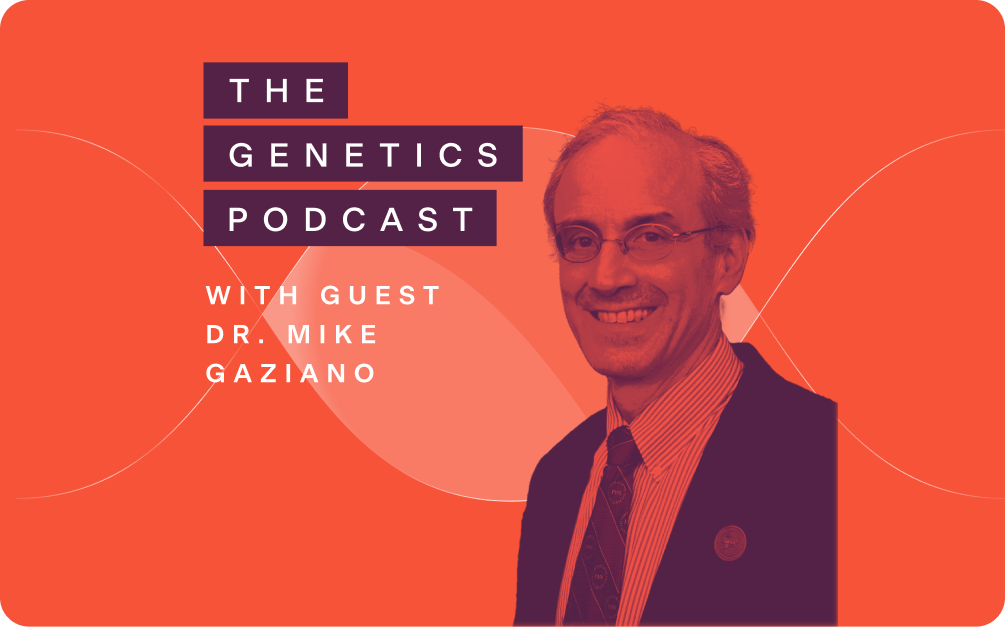Podcast recap: Exploring the Million Veterans Program with Dr. Mike Gaziano

In the latest episode of The Genetics Podcast, host and Sano CEO Patrick Short explores population genomics and precision medicine with Dr. Mike Gaziano. Dr. Gaziano is a Professor of Medicine at Harvard, working at VA Boston and Brigham and Women's Hospital. He is one of the two principal investigators of the Million Veterans Program (MVP), the largest health system-based mega biobank in the world.
About the Million Veterans Program
The discussion begins with an introduction to the Million Veterans Program, a national-scale research project in the US that studies how genes, lifestyle, military experiences, and other exposures affect the health and wellness of veterans. Dr. Gaziano shares the origins of MVP, emphasizing its significance as a monumental population study, particularly during a time he describes as "the most exciting in the history of population science". The MVP makes use of the infrastructure of the Veterans Health Administration, including one of the most granular electronic health records (EHR) systems in the country, centralized laboratories, and advanced computing infrastructure.
The conversation also covers the importance of diversity within the MVP. Dr. Gaziano emphasizes the program’s commitment to including underrepresented populations, such as those of African ancestry and individuals from rural areas. This diversity not only provides valuable information for the program but also improves the generalizability of the findings, making sure that the research benefits a broader population.
Dr. Gaziano reflects on the MVP’s milestone achievement of enrolling one million veterans by November 2023, a feat made possible by the veterans' commitment to serving not just their country, but also science. He attributes the program’s success to a combination of robust infrastructure and the veterans’ deep sense of duty.
The eras of population science
Dr. Gaziano categorizes the evolution of population science into four distinct phases. Starting from the early days of descriptive epidemiology—where basic counting of events such as plague deaths marked the science’s infancy—Dr. Gaziano traces the field’s development through the pre-analytic and analytic phases, leading to the current era of large-scale probabilistic modeling.
Now, technology and data are transforming population science. The integration of EHR, advanced genotyping, sequencing, and other omics technologies has enabled the study of large populations. Dr. Gaziano highlights the MVP's strategy of combining passive data collection (from EHRs and other sources) with actively collected data, such as biospecimens and detailed questionnaires. This dual approach allows for a comprehensive understanding of the veteran population, facilitating groundbreaking research across a wide range of health outcomes.
As the discussion wraps up, Dr. Gaziano reflects on the future of population science and precision medicine. He is optimistic that the ongoing use of research will accelerate discoveries and improve health outcomes. However, he also warns that while new technologies and methodologies hold great promise, they must be rigorously tested and validated in diverse populations to make sure that they are effective in the real world.
Listen here:
